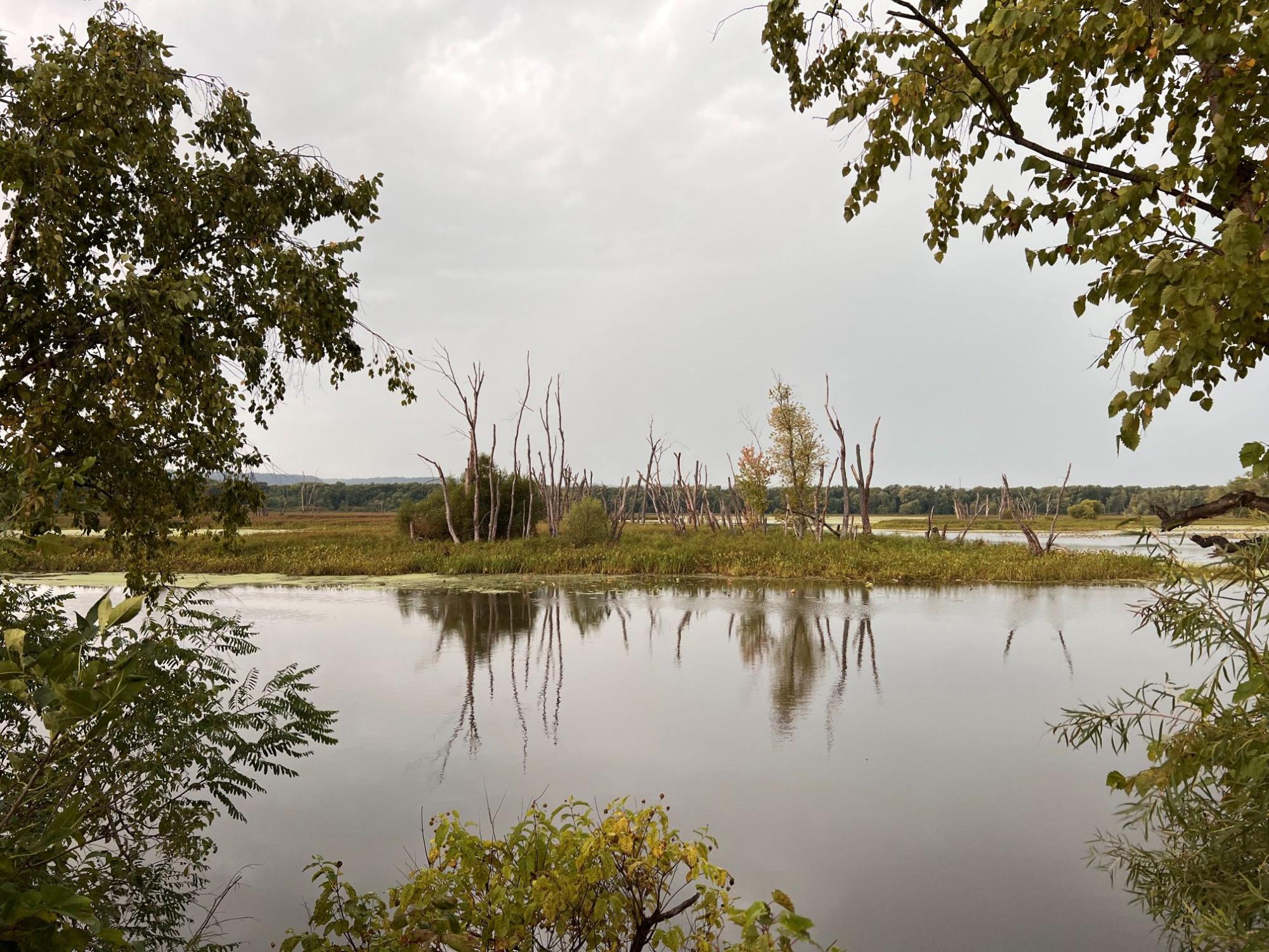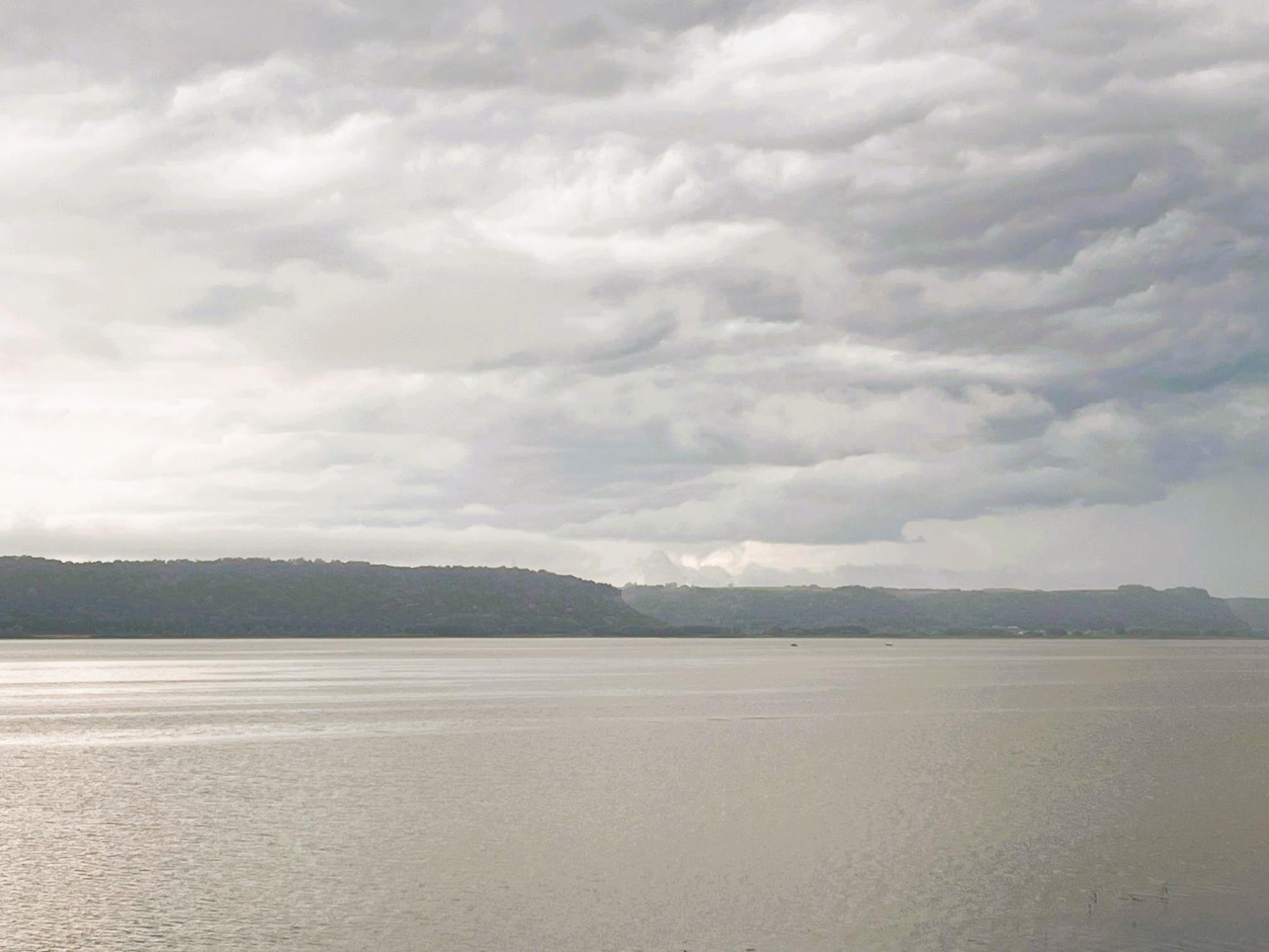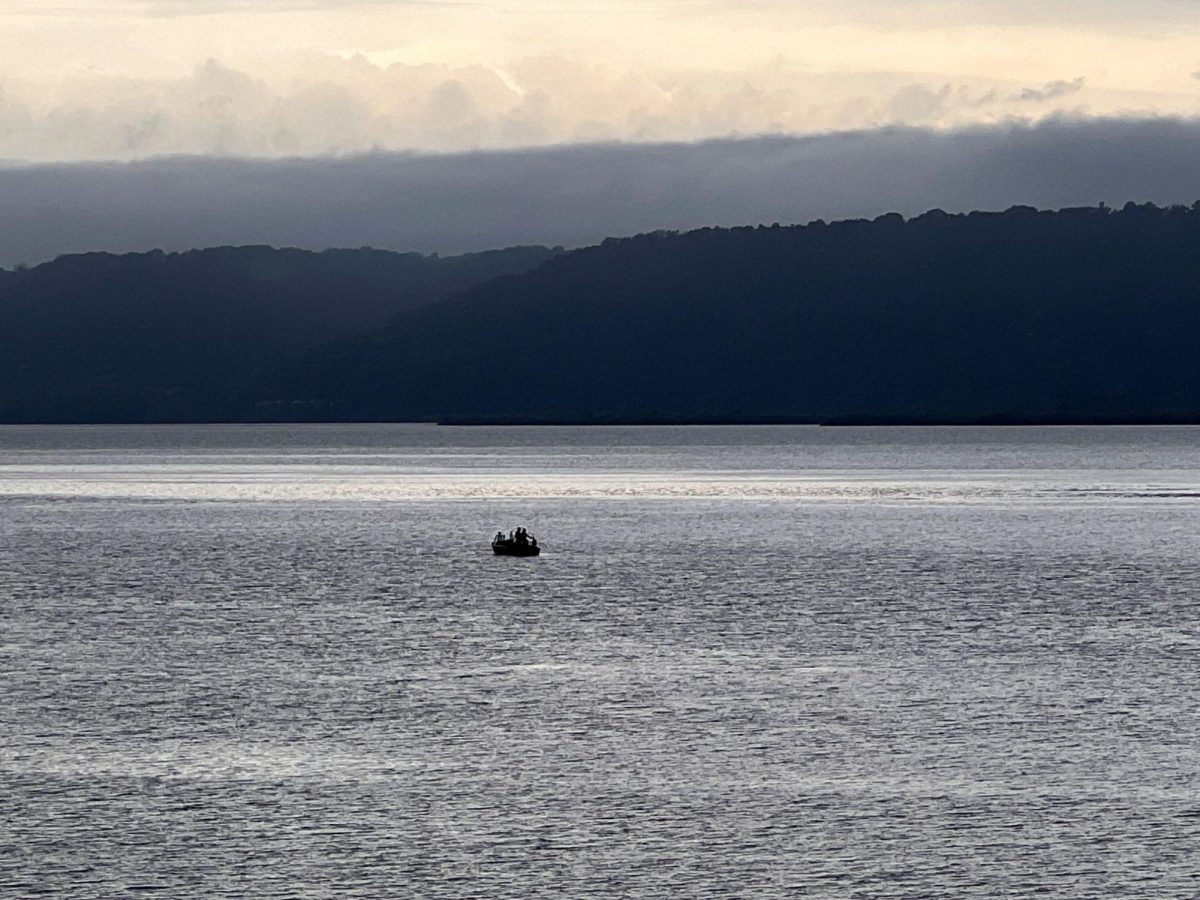The towering bluffs were shrouded with fog and ribbons of lightning flicked across the dark sky as I said goodbye to the waning hours of the summer.
It was the morning of Sept. 22 and I was heading south down the Great River Road Wisconsin from La Crosse to Ferryville for a business meeting. The bluffs on my left and the mighty Mississippi on my right were my guides.
A thunderstorm was rolling through from Minnesota and Iowa across the river as I admired the view of the river valley that never grows old. The wide river valley was formed some 10,000 years ago when the glaciers melted, creating a raging river that cut some 600 feet through the bluffs.

The soft sandstone eroded but the harder dolomite layers broke away along vertical joints, leaving behind the steep cliffs on both sides of the river today. The bluffs are a famous part of the Driftless Area, so named because the region was never leveled by glacial ice.
My car journey took me through Genoa and past Lock & Dam 8, part of the U.S. Army Corps of Engineers project to create and maintain a 9-foot deep channel for river navigation. The Genoa lock was put into operation in 1937 at river mile 679.2, one of 10 locks and dams located along the western boundary of Wisconsin between Prescott and Dubuque.
The dam is 934 feet long with five roller gates and 10 tainter gates. The dam includes an earthen embankment 17,500 feet long with two submersible spillways measuring 938 feet and 1,338 feet. I shuddered a bit to think that six adults and one child escaped serious injury this summer when they were swept under a tainter gate at the dam after abandoning their disabled boat.
The fall harvest is just beginning and barges traveling this stretch of the river carry about 60% of the nation’s corn and soybean exports. The upper Mississippi River carries 70 to 80 million tons of commodities including grain, coal and mineral products.
Below the dam were several fishing boats, which are commonplace along this stretch of the river. Pool 9 is a popular fishing area, with more than 100 species of fish to catch, including walleye, sauger, perch, catfish, bluegill and crappie, bass and northern pike.
In just a few hours the sun would pass over the equator as we would mark a few days of equal hours of sunlight and darkness. But the weather has been more summerlike and few trees have changed colors yet.
But nature knows. Overhead I noticed several flocks of birds flying south. According to Birdcast.info, the last night of summer more than 23 million birds crossed Wisconsin, part of 57.8 million birds in flight in the state. On Sept. 17, 44.6 million birds crossed Wisconsin, part of nearly 106 million birds flying across the state.
My journey ended in Ferryville, where I pulled aside for a few moments to take in the view from an observation deck next to a historical marker dedicated to former Wisconsin Gov. Patrick Lucey, who was from the village.
Mississippi is an Ojibwa word meaning great river or gathering of waters. It’s an apt name for the world’s third-largest drainage system, with 250 tributaries and branches that drains 41% of the country’s water from 31 states. The river is the world’s third longest, flowing 2,340 miles from Lake Itasca in northwestern Minnesota to the Gulf of Mexico.

I often wondered as a child when I played in our creek if I threw a stick in the stream if it would make that journey. I could picture it flowing down Little Creek to meet Beaver Creek in Franklin. Beaver Creek would flow through Ettrick to Galesville and meet the Black River, which would form up with the Mississippi River in La Crosse. From La Crosse it’s south through the upper Mississippi to the lower Mississippi at the mouth of the Ohio River and then on to New Orleans.
The journey of my stick would take months, perhaps as long as summer lasted.
I wondered where the past three months went. Time, like the currents in the river, forever flows. We can capture it in small chunks, but it keeps flowing.
The last of the summer rains started to fall. A storm was coming in.
I inhaled the river panorama and welcomed autumn.

